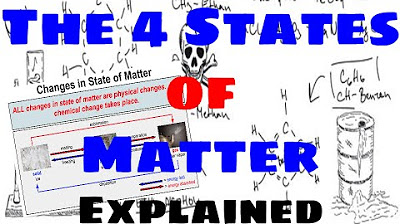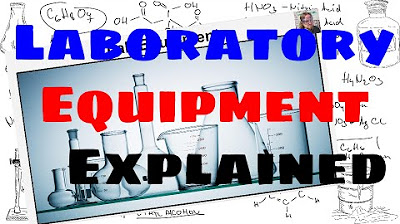What is Science?
Summary
TLDRIn this educational video, Mr. Rocher introduces the concept of science, highlighting its three key definitions: knowledge gained through experience, an accumulated body of knowledge through observation and experimentation, and facts derived from systematic study. The video emphasizes the importance of certain assumptions in science, such as the order of the universe and the repeatability of experiments. Additionally, it discusses how scientific questions can be tested, and explores traits of a good scientist, including curiosity, honesty, and skepticism. The next lesson will delve into the scientific method.
Takeaways
- 🔍 Science literally means 'to know' and is knowledge gained through experience.
- 📚 Science is an accumulated body of knowledge through observation or experimentation.
- 🌍 Science involves facts or principles gained by systematic study, such as the law of gravity.
- 🧠 Science assumes there is order in the universe and that the human mind can comprehend it.
- 🔄 Repeatability is essential in science; experiments must yield consistent results.
- 🌞 Some scientific questions can be tested, like whether the energy from the sun is in the form of visible light.
- ✍️ Opinions, like whether Shakespeare wrote great plays, cannot be tested scientifically.
- 💎 Scientific tools like the Mohs scale of hardness can measure if diamonds are harder than steel.
- 🤔 Good scientists exhibit curiosity, honesty, an open mind, and a willingness to be wrong.
- ❓ Asking good questions and maintaining healthy skepticism are critical traits for scientific inquiry.
Q & A
What is the literal meaning of science according to the video?
-The literal meaning of science is 'to know.'
What is the first definition of science mentioned in the video?
-The first definition of science is knowledge gained through experience, as illustrated by the example of learning to identify birds over time.
What is the second definition of science provided in the video?
-The second definition of science is an accumulated body of knowledge of the physical or material world through observation or experimentation, commonly done through lab experiments in schools.
What is the third definition of science shared in the video?
-The third definition of science is facts or principles gained by systematic study, such as the law of gravity.
What are the three assumptions that must be made in order to do science?
-The three assumptions are: 1) There is order to the universe, 2) The human mind is capable of comprehending this order, and 3) If conditions are the same, the results of any study will be the same.
Why is repeatability important in scientific experiments?
-Repeatability ensures that if an experiment is conducted again under the same conditions, it should yield the same results. This helps verify the accuracy of scientific findings.
Which statement in the video can be scientifically tested: 'Most of the energy coming from the sun is in the form of visible light' or 'Shakespeare wrote great plays'?
-'Most of the energy coming from the sun is in the form of visible light' can be scientifically tested using a spectrometer, while 'Shakespeare wrote great plays' cannot be scientifically tested as it is based on subjective opinion.
How can scientists determine the age of the Earth?
-Scientists can determine the Earth's age using methods like radioactive and radiometric dating, which measure the age of elements, revealing that the Earth is about 4 billion years old.
Why can't the existence of unicorns be scientifically proven?
-The existence of unicorns cannot be scientifically proven because there is no evidence or observation to support their existence, and their non-existence cannot be definitively proven just because no one has seen one.
What are some key traits that good scientists should develop, according to the video?
-Key traits include curiosity, honesty, an open mind, willingness to be wrong, asking good questions, and maintaining a healthy dose of skepticism.
Outlines

Этот раздел доступен только подписчикам платных тарифов. Пожалуйста, перейдите на платный тариф для доступа.
Перейти на платный тарифMindmap

Этот раздел доступен только подписчикам платных тарифов. Пожалуйста, перейдите на платный тариф для доступа.
Перейти на платный тарифKeywords

Этот раздел доступен только подписчикам платных тарифов. Пожалуйста, перейдите на платный тариф для доступа.
Перейти на платный тарифHighlights

Этот раздел доступен только подписчикам платных тарифов. Пожалуйста, перейдите на платный тариф для доступа.
Перейти на платный тарифTranscripts

Этот раздел доступен только подписчикам платных тарифов. Пожалуйста, перейдите на платный тариф для доступа.
Перейти на платный тарифПосмотреть больше похожих видео

The Four States of Matter - Explained

Lab Equipment - Explained

3. Gr 11 Life Sciences - Population Ecology - Theory 3 Mark Recapture Method

4. Gr 11 Life Sciences - Population Ecology - Worksheet 1

PENJASKES KELAS X - SOFTBALL

Introduction to Culture [AP Human Geography Review Unit 3 Topic 1]

Menentukan Mr ( massa molekul relatif )
5.0 / 5 (0 votes)
